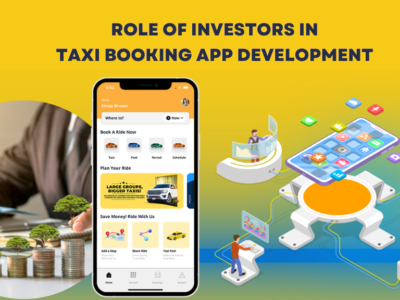How is MBaaS powering up mobile app development?
Applications today have been excelling due to the smooth user interfaces as well as due to their back-end services. App data is accessible through different devices through these cloud-based, back-end services. As mobile apps are getting more and more complex, modern app development is getting more complicated. Developers spend more than 50% of their time for back-end development, and hence, they need an improved way of meeting the market demands.
Thank you for reading this post, don't forget to subscribe!Applications today have been excelling due to the smooth user interfaces as well as due to their back-end services. App data is accessible through different devices through these cloud-based, back-end services. As mobile apps are getting more and more complex, modern app development is getting more complicated. Developers spend more than 50% of their time for back-end development, and hence, they need an improved way of meeting the market demands.
MBaaS can be altered how it looks, just like changing the way an app looks through its user interface, but the core functionality of phone stays the same. Developers don’t need to re-create these services that their applications need access to because MBaaS offers a consistent way of linking to external, pre-built, behind-the-user-interface functionalities such as connecting to social media or to cloud storage. Mobile innovation has been augmented due to this technology in numerous ways – be it productivity, flexibility, and agility.
Productivity
Presently, MBaaS can be installed in the cloud or on-site, based on the project requirements. The following are some standard MBaaS APIs for reference:
- Push Notifications
- Usage analytics
- User Management
- file and data services
- Social Network Integration
Most of the modern mobile applications require these services, and it may be logical to reuse them within different projects and applications with centralized monitoring and control.
In a survey of about 150 developers, it was observed that back-end-as-a-services could trim down dev time by about 44%. In addition, MBaaS services are usually proven and optimized to stay competitive in the market. Through those shared APIs, development productivity can be improved significantly, and developers can move their front-end core features from the low-level back-end tasks.
Flexibility
Advanced-service APIs and SDKs are provided by several prominent MBaaS dealers, by which developers can link apps with their advanced yet inexpensive services.
Building these services (such as mobile AI solutions) from scratch would be very complicated for the developers. To reduce the up-front venture capital, these services are generally charged in pay-as-you-go models so that the companies can have the flexibility to link and test those advanced features for market testing. Thus, the development costs can now be stretched over an extended time frame, and the venture capital can be easily rationalized when the market demands are verified.
Agility
In standard mobile development, end-to-end development is required from the back-end infrastructure to the front-end application. Developers don’t need to fret about the core infrastructure and networks, but they only need to concentrate on their apps and data.
The development phase can be much quicker, with reduced testing time as most of the infrastructure is usually provisioned and back-end services are prebuilt and tested. And as the development phase gets shorter, end-products can be released faster, with rapid iteration cycles, to collect user feedback. Thus, you can augment your organization’s innovations by leveraging MBaaS. Instead of developing everything all on your own, MBaaS avails y benefits for loose change.












